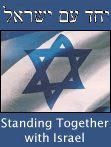Canadian-Politics on Canadian Politics: Jo McNair Interview part 4
Save this online in Del.icio.us. [?] Vote For this PostCanadian-politics.com's Jo McNair has been answering our questions on Canadian politics over the past few days. Today, Jo presents her opinions on foreign affairs and national security.
I'd just like to make a few comments before presenting Jo's answers.
First, the Canadian government does not offer "unquestioning" support for Israel. Neither do the Americans. There is no proof to this effect regarding the current governments, and when one reads up on the history between Israel and North America, it is even more evident that this is not so.
Second, supporting a fellow democracy in its fight against terrorism makes us safer and stronger. It's a myth that this endangers us, because we've been targets of international jiahdis since day 1.
Third, I have to disagree with the suggestion that what Ben Laden presents as his casus belli - US support for Israel, US involvement in the Arab world, etc. - is the honest truth. That would mean accepting a terrorist's word as being honest, and it would also mean having a total disregard for jihadist ideology.
That said, here are Jo's insights on
Foreign Policy/National Security
I think these two items can be treated as one since it is our foreign policy that may well impact on our national security.
With the new government's unquestioning support of Israel (which in all fairness, started under the Martin Liberals), Canada is placing itself in a more dangerous area in this post-11/9 era. Given that we are largely inconsequential players internationally, I don't think it's the wisest move to align ourselves so strongly in one camp or the other. The US's foreign policy with its unconditional support of Israel, support for despotic regimes in the Middle-East (and need for oil of course) - is why they are the main target of Bin Laden and his ilk. If we are going to echo this position, we must also be prepared to face the consequences.
Contrary to what many like to argue, Canada wasn't previously neutral or pro-Palestinian in the past. We voted on UN resolutions on a case-by-case basis based on the merit of the resolution being put forward. Sometimes we voted in favour of Israel; sometimes we voted for measures that favoured the Palestinian side. This is how it should be since, as in all things, no one side is 100% right all the time.
I think a much better role for Canada would be to work with other countries such as the Scandinavian nations to try to broker peace agreements (and now ceasefires) between the various parties. Canada's strengths include our ability to seek compromise between various groups, and that is something that this region needs. This country has (or at least had) a reputation for being fair-minded and principled, we have no colonial baggage, we don't have the overwhelming national interests in the region that the US does (oil), for example, we've done an extremely good job of building a truly multicultural country - these are the principles that must guide our foreign policy stances.
The mission in Afghanistan also must be properly debated. Is our presence there really going to have any impact? And what sort of impact are we trying to achieve? We natter on about defending "freedoms," we seek to impose democracy and western-styled legal systems - but what if the majority don't really want that? Has anyone asked - really asked? The Pashtuns are largely very conservative, strongly islamic people. If they want an islamic state based on shariah law, that is their right. If we're in Afghanistan to try to help them achieve the type of country that THEY want, fine. But if we're trying to impose a regime that we want, we have no business doing that any more than we'd have any business being in the US trying to get the US administration to adopt policies we want.
We do need to beef up our military, but first I think we need a national debate on what the main goals of our military should be - mostly domestic (protect our own borders and sovereignty) or a combination of domestic and international. We need Canadians to stop viewing our military as "peacekeepers" only.
It all comes down to a need for a serious debate to 1) define what are our national interests, 2) what are our strengths, as a nation - what can we contribute to the rest of th world, and 3) how to combine and build on our strengths in order to achieve and defend our national interests.
If you want to read more/follow our coverage of Canadian politics, consider our free newsletter (scroll all the way down for the sign-up).
Here are some related articles:
Canada's "Provocation" Of Islamic Terrorists
Why some Muslims hate the West - a case study
Why the New Left hates the West
This article and related articles are archived in the topical categories Conservative Party of Canada, Canada's foreign affairs, Canadian national security, terrorism.






0 Comments:
Post a Comment
<< Home